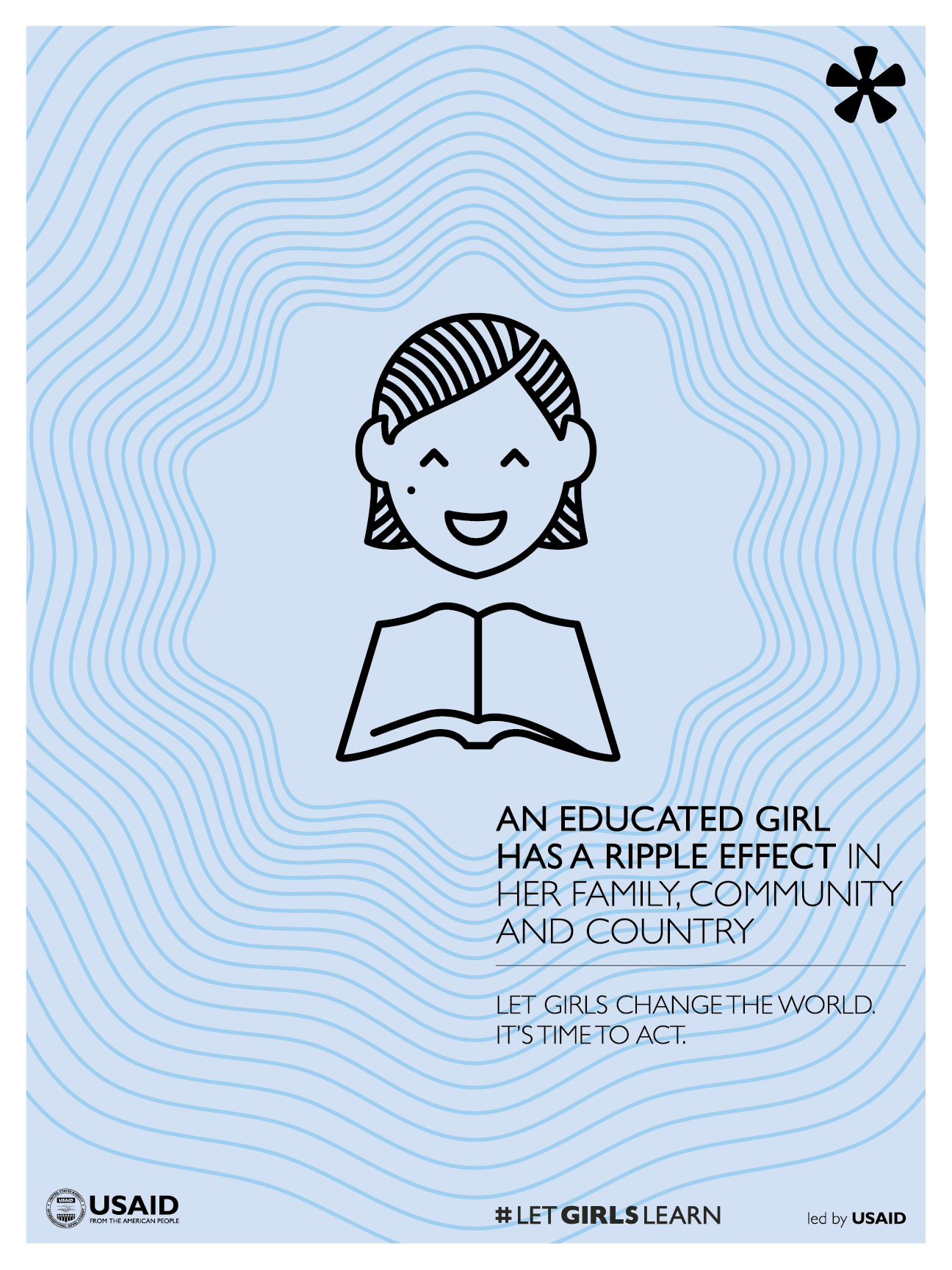- What We Do
- Agriculture and Food Security
- Democracy, Human Rights and Governance
- Economic Growth and Trade
- Education
- Ending Extreme Poverty
- Environment and Global Climate Change
- Gender Equality and Women's Empowerment
- Global Health
- Water and Sanitation
- Working in Crises and Conflict
- U.S. Global Development Lab
In 2015, the world saw the adoption of the United Nations (UN) Agenda for Sustainable Development, putting in place the Sustainable Development Goals (SDGs) and the United Nations Educational, Scientific and Cultural Organization (UNESCO) Education 2030 Framework for Action (Education 2030). Over the next fifteen years, countries will mobilize efforts – primarily through partnerships - to end all forms of poverty, fight inequalities and tackle climate change, while ensuring that no one is left behind.
The scale of the challenges facing the education sector requires nothing short of fully committed collaboration at both the country and global level. The U.S. government is one of the largest bilateral investors in global education. USAID partners with other U.S. government agencies, donors, governments, multilateral agencies, civil society, and the private sector to ensure an inclusive and equitable quality education for all, especially the most marginalized and vulnerable.
USAID supports global partnerships and initiatives that foster innovation and create new opportunities for collective action in education. Rising issues like education financing, including mobilization of domestic resources, require new and innovative thinking, and strong partnerships. USAID is engaging with new education funding platforms to encourage the participation of investment from new, non-traditional donors and organizations to unlock new sources of funding for education in emergencies and protracted crises.
Poster - An Educated Girl Has A Ripple Effect ![]() (pdf - 424k)
(pdf - 424k)
USAID’s global partnerships help leverage the Agency’s annual $1 billion investment in education. They include:
- The Global Partnership for Education, mobilizing global and national efforts to contribute to the achievement of equitable, quality education and learning for all, through inclusive partnership, a focus on effective and efficient education systems and increased financing;
- Let Girls Learn, a United States government initiative to ensure adolescent girls get the education they deserve;
- The All Children Reading Grand Challenge for Development that leverages science and technology to to improve early grade literacy in developing countries;
- The Global Book Alliance, to ensure that all children have access to books to learn to read and read to learn;
- The Mobiles for Education Alliance, using technology to help improve learning outcomes; and
- Education Cannot Wait, created to strengthen the global response to education in emergencies and protracted crises.
- Building Evidence in Education (BE2) Donor Working Group, strengthening evidence in the education sector by increasing use of evidence by policy makers and practitioners, and improving research coordination among donors.
USAID is also providing leadership in education through the Global Partners’ Working Group on School-related Gender-based Violence, the Youth Employment Funder’s Group, and the LAC Reads Capacity Program.
Learn More
Read more about USAID’s programs:
- All Children Reading
- Putting Education to Work
- Education in Crisis and Conflict
- Training People for Maximum Impact
- 2015 Global Education Summit








Comment
Make a general inquiry or suggest an improvement.